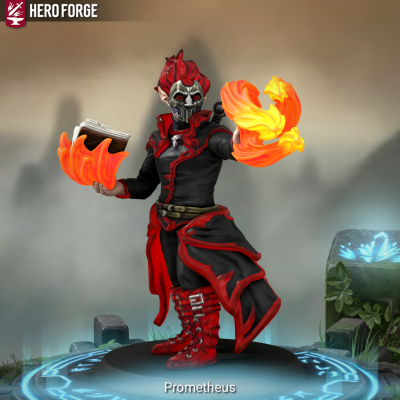Sessions / Location Name: Zoom B
Virtual Location
Virtual: You cannot enter virtually via this page. Click on the titles of individual presentations or go to the Live Page
Using Twine in the Foreign Language Classroom #3028
This workshop will explore potential uses of Twine, an open-source platform for creating non-linear stories, in the foreign language classroom. Non-linear storytelling and interactive fiction can help teachers to create a playful and immersive learning environment, which allows learners to gain the same benefits as reading traditional narratives, but with added agency over the direction of the story and interaction with the narrative. These additional elements have been shown to increase the motivation of students to read, and can be used to facilitate discussion, critical thinking, and decision making that is not easily accommodated through the passive reading of traditional narratives. Learning how to create non-linear stories with a platform such as Twine can therefore provide educationalists with a new, easy to use, and effective tool to create immersive exercises for their classes.
Participants in this workshop will gain a basic knowledge of Twine, its limitations, the possibilities it offers, and some of its potential uses in the classroom. They will be guided through the basics of creating non-stories with Twine and will start to create their own simple non-linear story using the platform. Following completion of the workshop participants will have acquired the skills to begin developing new resources for their own classes with Twine and the knowledge to guide students through the use of the platform.
Participants do not require a knowledge of Twine or its markup language (Harlowe) since the workshop is aimed at those with little to no knowledge of the platform and limited knowledge of digital methodologies and paedologies more generally. Those wishing to attend will need access to a computer during the workshop and should have either downloaded Twine beforehand (https://twinery.org/) or be able to access the online version during the workshop.
ESL Speed Readings: the app #3091
Speed reading is an important skill for language learning. It falls into Paul Nation's fluency strand of language learning. Speed reading is considered a fluency activity because there should be no unknown vocabulary, or at least very little, in the readings. With an understanding all of the words, learners can focus on increasing their reading speed, instead of slowing down to guess the meaning of unknown vocabulary. At the English Language Institute, Victoria University of Wellington, teachers have been incorporating speeding reading for years. Over the years, Sonia Millett, Paul Nation, and Emmy Quinn have written over 100 stories for the speed reading component at the Institute. Each of these stories has a comprehension quiz which consists of 10 multiple-choice questions. Until recently, these stories were only available in PDF format. This presentation introduces the newest format for the speed readings. The speed readings have been used to create a mobile app titled 'ESL Speed Readings'. This is a free app and is available for Android and iOS devices. The app comes with 100 stories at four different graded levels. The app takes care of the entire speed reading process, including automatic quiz scoring and data visualization. By doing so, learners can focus on increasing their reading speed without worrying about writing down their reading time or grading their own quizzes. Additionally, the app uses standard words per minute, has a reading timer that is accurate to 0.4 words, and provides frequent customized feedback to the learner based on their past performance. The presenter, who is the developer of the app, will demonstrate the app, detail its mechanics, discuss implications for research and pedagogy, and highlight future updates.
Exploring the role of interactive fiction creation on writing motivation #3077
Motivating our students to write in English can be challenging. This presentation will describe a Project Based Learning (PBL) task focused on student-made interactive fiction (also called gamebooks) using Google Slides. The findings of a case study conducted with 48 first-year university students showing increases in time-on-task, engagement, and motivation will be discussed. In particular, it was found that students' motivation to write in English greatly increased as a result of the project. As well, the presenter will explain the creative process of organizing a gamebook using storyboards and flowcharts (which can be created offline) and the benefits of using Google Slides to facilitate collaboration and content sharing. This presentation will be of particular interest to language educators looking for a creative way to motivate students to produce meaningful and enjoyable English compositions.
Teachers' Pedagogical Scaffolds in Ludic Language Pedagogy: Implementing Synthesis of Qualitative Data (SQD) Model #3053
Ludic language pedagogy is concerned with exploring games and plays in language teaching contexts (York et al., 2021). This approach uses a playful disposition toward curricular design and encourages academic work through games or playful activities. But current research on games in language education lacks details regarding the role of teachers and scaffolds teachers use to integrate games and play into teaching. Thus, we explored teachers’ supports in game-based language teaching from students’ perspectives. In this study, teachers’ pedagogical scaffolds was measured based on the six support strategies of Synthesis of Qualitative Data (SQD-model) composed of different support strategies of role model, instructional design, authentic experience, collaboration, reflection, and feedback. Through a qualitative lens, seven first-year university students in the Iranian EFL context engaged in game-based language learning and were interviewed regarding their teachers’ pedagogical scaffolds during the training sessions. Qualitative content analysis was used for data analysis. The findings showed that role models provided sufficient understanding of games and mirrored the educational use of games among the strategies. The second most favorable strategy was the collaboration through which the participants had adequate opportunities to work together and share ideas, which reduced their anxiety. The findings also suggested that although all of the strategies were sufficiently addressed during game-based learning, the participants felt that the teacher did not give them sufficient support for reflective practice. The significance of the study is crucial to understand that the role of teachers is imperative for the game-based learning experience. Also, it shed light on what teachers’ roles can add to language and literacy learning. Moreover, findings will contribute to a community of practices around games that can be nurtured, cultivated, and eventually propagated across multiple classroom contexts and settings.
Quiz Students on Words and Phrases with the Lingolab Sites #3067
In this presentation there will be interactive demonstrations of the three free LingoLab web apps. The LingoLab activity itself involves learners being shown a text/audio/picture prompt and learners respond by forming the target word or phrase in one of three response modes with differing levels of productive ability required: ‘Shown words’ mode, ‘Hidden letters’ mode, and ‘Stellar speller’ mode. Attendees of this session will learn how they can use the lingoLab activity to provide their students with word and phrase-level practice in the following sites: a) www.lingolab.co (for self-study practice with progress tracking & sharing functions); b) www.lingolab.online (for a one-time quiz which reports all results to a teacher); c) www.lingolab.live (for an in-class real-time multiplayer quiz game).
Creating an Online Archive of Digital-Keyword-Method Images #3065
A truism that every second-language learner knows is that without vocabulary, nothing else really matters (Tight, 2010). A common method, especially in Japan, for studying vocabulary is rote-repetition. This technique entails writing words over and over again in the hope that they will be consolidated into long-term memory. This is the opposite of fun. But there is a better, and more playful, way to learn vocabulary.
This Show & Tell presentation consists of three parts. First, a mnemonic technique for remembering vocabulary called the Keyword Method (Atkinson, 1975) will be introduced. The Keyword Method aims to create a link between the L2 word and its L1 meaning by using a “keyword” that sounds like the L2 word interacting with the L1 translation. In stark contrast to rote-repetition, the Keyword Method allows students to use their imagination and sense of fun to remember vocabulary. The next part of the presentation will explain how modern technology such as iPads, WiFi, Google images and Instagram was used to extend the original Keyword Method in a digital classroom. Finally, participants will be guided through a free online archive created by the presenter of over 650 modal-ensemble Digital-Keyword-Method images for more than 300 words from the TOEIC Service List (Browne & Culligan, 2016) which they can incorporate into their own classes to create an environment of linguistic play.
Comparing Quizlet as an individual and group task #3024
Due to the COVID-19 pandemic, educators all over the world are no longer able to maintain the traditional education system but are forced to create new innovative systems, mostly relying on digital platforms. However, this is not suggesting the end of school structure, but it could be an opportunity for a better way of teaching to a wider population of students not required to be physically present in the “classroom”. One of the popular online study tools is Quizlet, and there are many language teachers who incorporate Quizlet into their classrooms. While Quizlet is a very popular learning tool, there are questions whether how many students actually appreciate and are motivated to learn vocabulary without the teacher enforcing them (Lander, 2016). In this presentation, the students' responses to using different modes of Quizlet are compared in vocabulary learning among college-level students as an individual and group task. After qualitative research from the students using various functions of Quizlet, the researcher realized that interaction is one of the key elements of students' motivation and satisfaction. Although the education technology seems to help students work individually, group interaction should be incorporated in vocabulary and language learning.
Introduction to Words & Monsters - an Adaptive Smart Game #2943
Words & Monsters is a free mobile game that teaches the most frequently occurring words for general English and also for several special purposes. Words & Monsters combines patented adaptive technology with fast-paced multiplayer adventure action. At the start, the game adjusts itself to the lexical ability of each player. After about 20 minutes the game will have identified which specific words a player already knows and correlated their vocabulary composition to scores on eight standard proficiency tests including TOEFL, TOEIC and Japan’s kyotsu shiken. The game then teaches each player the most frequently occurring words they do not know, thereby increasing their receptive comprehension. Spaced repetition is employed to build long-term memory retention of newly learned vocabulary. Both the study rehearsals and the game mechanics involve managed uncertainties that are designed to promote emotional attraction to sustain motivation. The game allows for solo and multiplayer activity. When playing with others, a player’s ability level confers no particular advantage; effort and focus are what matter most. This show and tell presentation will look first at how the adaptive technology operates to identify each player’s known and unknown words and then wraps up with a look at the game and the free LMS for teachers. Words & Monsters is available in the App Stores and it is suitable for any level of English ability for ages 8 and up.
How to publish and collaborate with the Ludic Language Pedagogy journal and community #2952
This talk will give you all the information and materials you need to get started down the track towards publishing your work in the Ludic Language Pedagogy journal and getting involved in its broader community of teachers, researchers, designers, students and lurkers. First, we’ll introduce the mission and scope of the journal: the intersection of ludic (all manner of games and play), language (first, second, literacies, media) and pedagogy (teaching, curriculum, assessment, ideologies). Second, we’ll explain the three submission types that the journal accepts: (1) research articles, (2) high-resolution walkthroughs of actual teaching with games and (3) playground pieces that let you experiment playfully and flexibly with ideas and others. Third, we’ll talk you through the submission process: our Google Docs templates, our Open Peer Review philosophy and process, and tips to make your writing, submission, revision and publication go smoothly. Fourth, we’ll introduce you to the “other side” of the journal: our Discord community and projects, our “un-conference-un-workshop-un-boring” LLPx events, and what you might take and what you might give to the stuff around the edges of the LLP Journal. We’ll provide plenty of materials and resources and promises of continued help. Feel free to bring anything from manuscript to an idea scribbled on a napkin for us to look at. Come be part of a hipster indie journal before we sell out!
Online speed-reading: the fastest way to improve reading fluency #2942
Being able to read fluently is important for any language learner, whether it is for their academic achievement, career advancement, or just improving their general language proficiency. One of the most effective and efficient ways for students to improve their reading fluency is by engaging in a dedicated speed reading course such as those advocated by Paul Nation (Nation, 2018). However, such courses are challenging to implement because they typically involve a textbook specifically created for speed reading, and require students to track their reading time, calculate their reading speed and report their progress. While these print resources are useful, an online system that can calculate a student’s reading speed and track their progress automatically would provide significant advantages for both students and teachers. In this practical workshop, the presenter will discuss and demonstrate several free and commercial online speed reading applications which the participants can try out for themselves.
Effective Pedagogy to Stimulate Learner Engagement in App-based L2 Vocabulary Self-study #2931
Language learning apps have gained increasing popularity recently for their effectiveness in supporting second language (L2) development, but the issue of low learner engagement persists in both formal classroom (e.g., Hanson & Brown, 2020) and informal self-study (e.g., Loewen et al., 2020) contexts. Additionally, despite over two decades of progress in mobile-assisted language learning (MALL), the integration of MALL into L2 classes is still lacking (Burston, 2014; Chwo et al., 2018). This study aims to provide an example of integrating app-based learning as a course assignment, and to explore how goal setting with feedback as an updated teaching strategy (Mercer & Dörnyei, 2020) affects learner engagement in app-based L2 vocabulary self-study. Sixty-three Japanese learners in college-level English as a Foreign Language (EFL) classes were randomly assigned to treatment (n = 32) or control (n = 31) groups, and studied TOEIC words with the Memrise app as an after-class assignment for 8 weeks. Whereas the control group had their weekly goals of studying 35 words set by the teacher, the treatment group set and checked their weekly goals of studying at least 30 words and provided reasons if not meeting their goals. The number of words studied weekly was recorded for each participant to index engagement. Apart from goal-setting-and-checking activities, we also explored leaderboards and Unfinished Lists (lists of students who did not finish the Memrise assignment) as feedback tools by collecting learner ratings and comments. EFL listening and reading proficiency before and after using Memrise was assessed with TOEIC tests. Results showed the treatment group studied significantly more words than the control group, although TOEIC performance of both groups did not change significantly. Learner perception data supported the value of adopting these three pedagogical interventions in class. Practical pedagogical guidance on adapting these activities into L2 classrooms will be discussed.
A 6th grade student presents his research: Can video games improve concentration? #2949
Many people have a bad image of video games. The WHO is concerned about video game addiction. Two years ago, Kagawa Prefecture instituted a "one hour a day for games" policy. However, my friends and I can communicate with people all over the world while playing games, and children can learn language, math, history and other things with games. A school principal in Japan found that reading books improved memory more than by playing video games. I decided to investigate the effects of video games and reading in order to think about how to improve education using games.
I conducted experiments using video games, card games and books. In 2020, I worked with my whole class (30 students) and tested students’ memory after using different media and found highest results after card games. In 2020 and 2021, I then conducted two different experiments to explore the additional effects of concentration and motivation, in order to understand my results better. I observed, interviewed and used stimulated recall to understand students’ concentration while using various media. I found that students concentrated most while playing video games. Interestingly, students reported less motivation to continue playing games, and more motivation to continue reading.
I don’t want teachers and parents to make decisions based on prejudice or ignorance. In my presentation, based on the data I collected, I will give my “top five tips” for effective language teaching and learning with video games, card games and books. I believe that the other conference attendees will be able to use my experiences and my tips to help their students learn better.
Automatic Readability Assessment using Artificial Intelligence #2926
In this presentation, we will present a summary of recent advancements in automatic readability assessment for second language learners using artificial intelligence. Automatic readability assessment is a fundamental task that can be applied to a wide range of language learning situations, such as recommending appropriate texts to learners. Many formulas have been developed for this task using superficial measures of text, such as the Flesch-Kincaid Grade Level (FKGL). This leads us to the following research questions. Which method among the many formulas should be used? Or do we need to develop a better method? In this presentation, we will summarize our recent results to address these research questions. In 2018, Vajjala and Lučić published a corpus in which English teachers were actually asked to annotate the difficulty of each text on a three-point scale. This made it possible to compare which evaluation formulas and methods are in line with the judgment of English teachers. In this presentation, by using this dataset, we report the comparisons of the accuracies of various methods ranging from conventional the FKGL formula to our recent neural natural language processing-based methods such as Bidirectional Encoder Representations from Transformers (BERT), which has recently been introduced in the AI-based-software developers communities. In addition, using data from vocabulary test results conducted on learners, we report that we can predict the difficulty of a text accurately without looking at the label of the difficulty of the text at all. Of course, there are other settings that we have not covered in this experiment. For example, this corpus is based on general newspaper texts, which leaves unanswered questions about English learning in STEM and other fields. In this presentation, we will also address current open questions, such as what kind of data is needed to answer what kind of open questions.
Leveraging a spatial chat software to design gaming experiences for in-class instruction #2919
Recently it has been argued that there is a lack of research on practical applications of digital games in the language learning classroom (York et al, 2021). This has inspired a movement to focus on ludic language pedagogy rather than on the design of digital games. Scholars have suggested that digital games are often not used in classrooms because schools lack the necessary resources (e.g. gaming computers, gaming libraries), teachers lack gaming literacy, and there is lack of control over game design. In this presentation, I will illustrate how teachers can use spatial chat software called Gather.Town to quickly design virtual gaming experiences that can be leveraged for in-class lessons. Gather.Town is a virtual chat platform that integrates traditional virtual conferencing with spatial chat functions and retro digital gaming environments. In Gather.Town users create an avatar which they control to navigate a digital space. Like other spatial chat platforms, when a user approaches another user, their video pops up allowing them to interact with those in their proximity. Unlike, other spatial chat platforms, Gather.Town allows teachers to customize complex environments, insert unique objects, and embed pedagogical materials. Further all of this can be done in a browser thus limiting the need to purchase additional software. These affordances allow teachers to quickly manipulate already existing virtual worlds to create simple games that can be leveraged for in-class instruction. In this presentation I will provide three practical examples of games that can be created with minimal design work. However, and more importantly, I will then illustrate how these games can be leveraged to promote meaningful language use in the physical classroom. While this presentation is not meant to be a tutorial on Gather.Town, I will provide a few tips and techniques for those who are new to the platform.
Student Attitudes Toward English Podcasts Hosted by Native English Speakers vs. Non-native English Speakers #3047
The KIT English Podcast is representative of how several different technologies -- podcasts, software, Google Forms, and Moodle -- can be used together to create an effective and flexible language learning experience that can be quickly tailored to meet the needs of students. Podcasts themselves are a technology that is valuable for language learners, as it provides a source of authentic language that can be easily accessed outside the classroom for autonomous learning. From the instructors standpoint, podcasts are easy to produce using rudimentary recording equipment and free recording and editing software. In this project, another technology that was useful was Google Forms. Administering surveys using this method helped the instructors gauge what topics students were interested in and dictated the topic for each podcast episode that was made during the semester. Moodle was used to create short assessments that were used to test listening comprehension after each podcast assignment. The authors will detail the production process and how the above technologies were used, how topics were chosen, and how factors such as episode topic, British English, and American English affected student attitudes.















